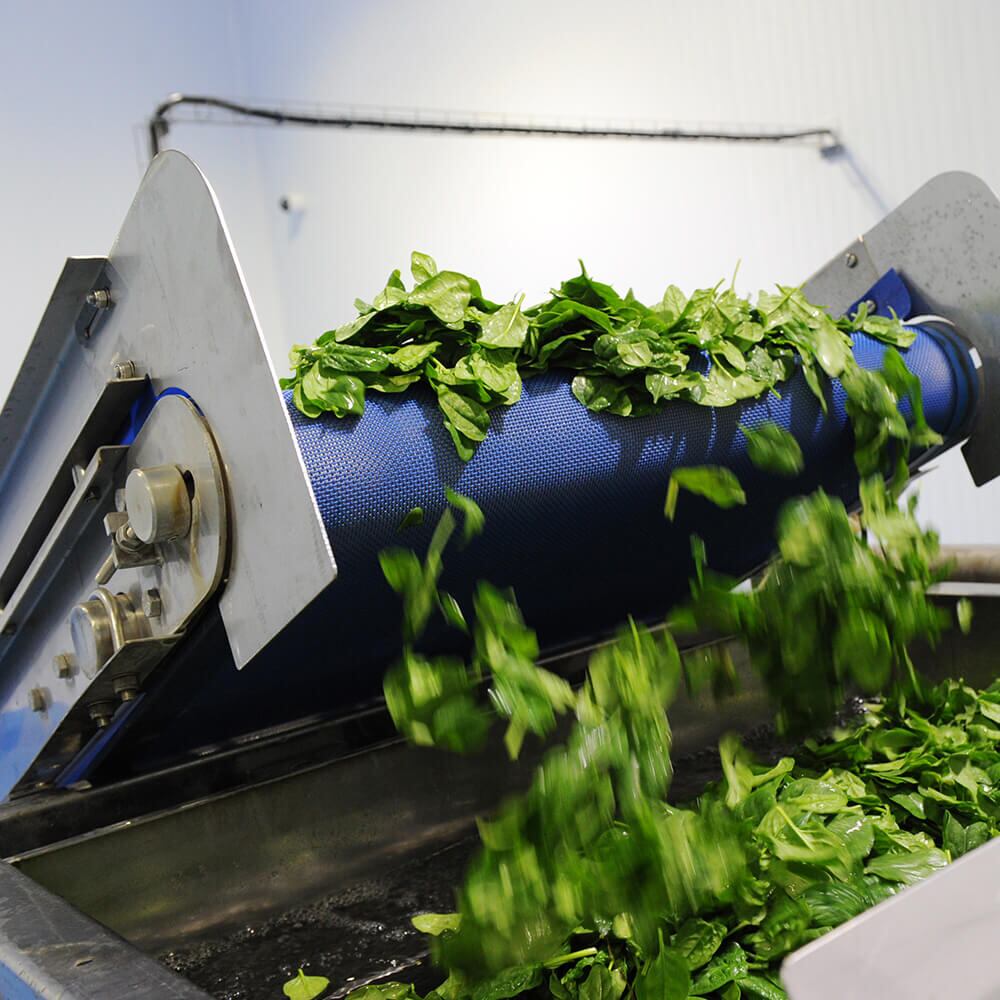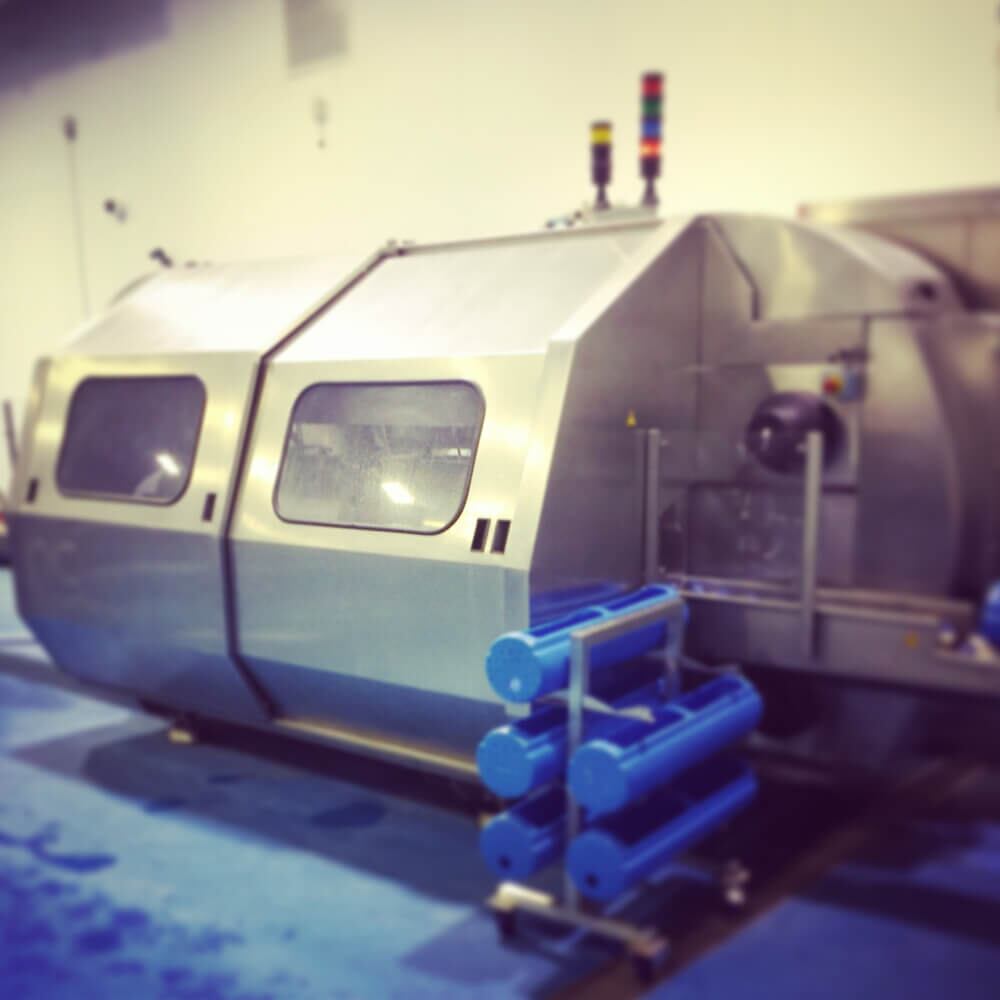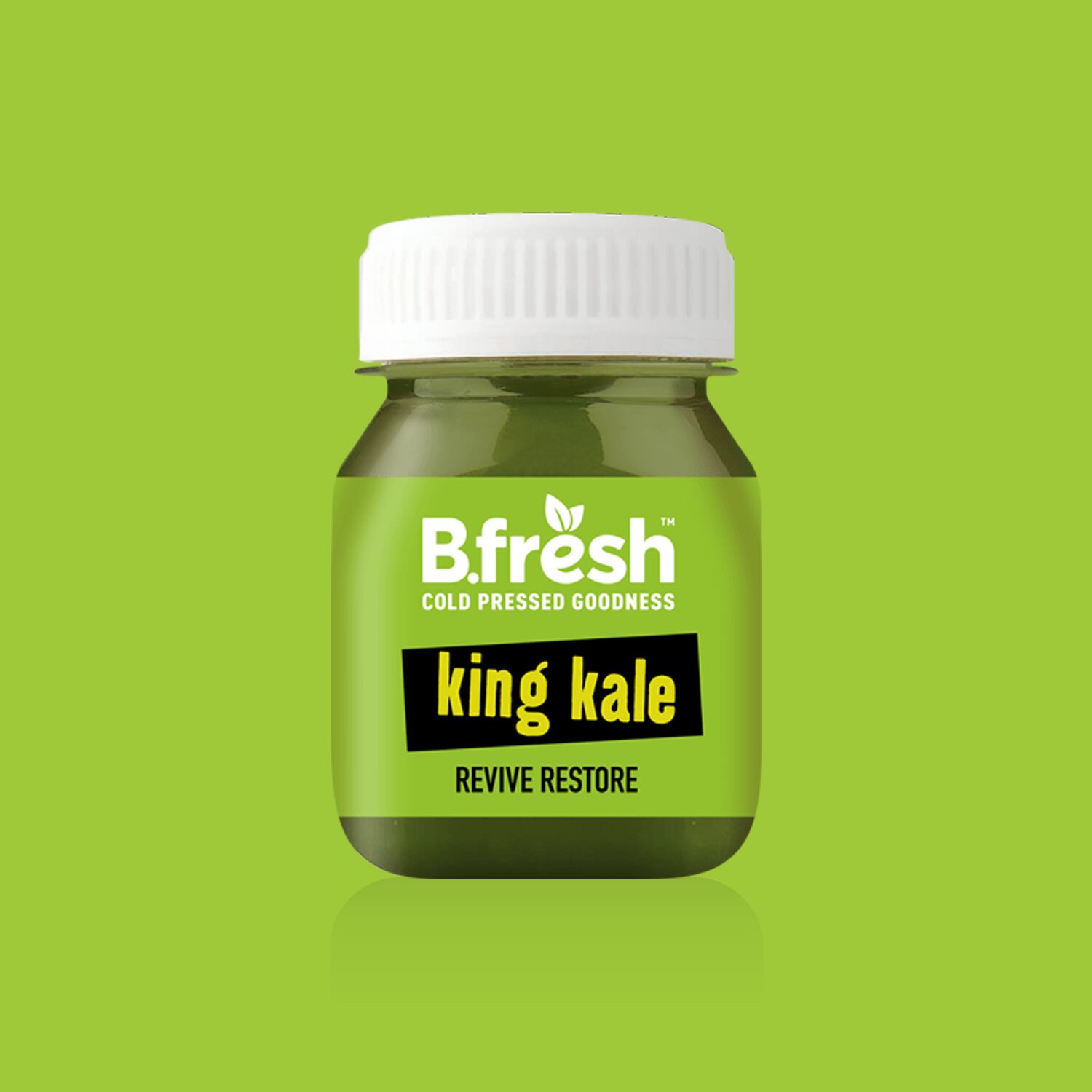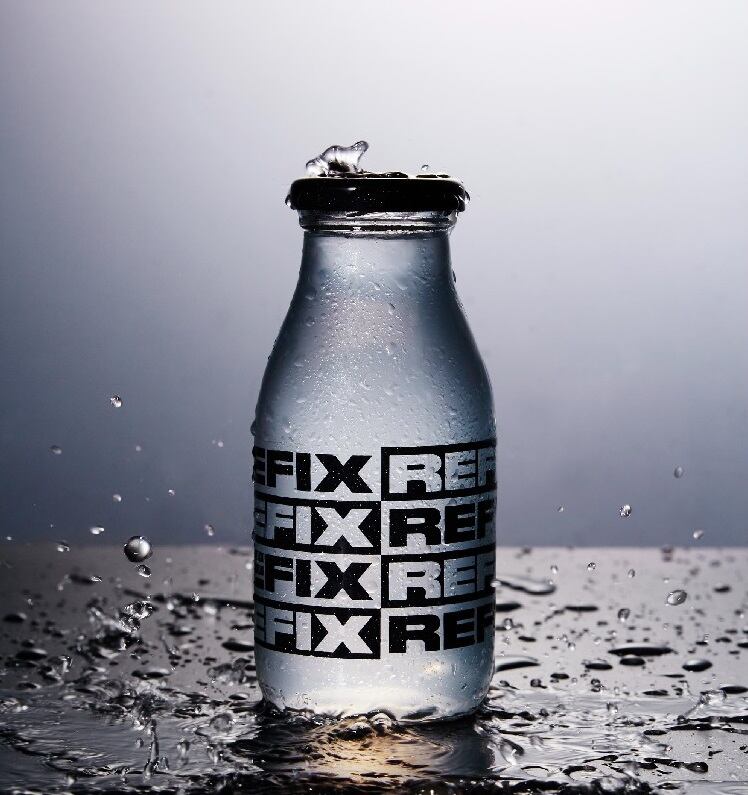Cold pressed juice company B. Fresh has expanded its juice range to include three cold pressed ‘shots’: King Kale, Rocket Fuel, and Ginger Fix.
The range joins a selection of ‘Watered Up’ juice/water mixes, cold pressed juices, super smoothies, and most recently, plant-based protein shakes, all of which are produced on-site at B. Fresh founder Philip Maddocks’ Shropshire farm.
“We own our own facility, we are here in the UK growing, producing, bottling. It’s a ‘field-to-bottle’ story if you like. None of our competitors right now have that capacity,” B. Fresh marketing manager Katie Briggs told FoodNavigator, adding that the company plans to expand to distribution to Northern Europe this quarter.
‘Own grown, known grown’
Maddocks founded B. Fresh in 2014, after a ‘freak hailstorm’ affected his spinach crops one summer. “The hail had peppered all the spinach leaves, which obviously makes them no use to supermarkets because they didn’t look good,” explained Briggs. “Nutritionally, however, they were absolutely fine.”
A quick Google search had Maddocks investigating alternative uses for spinach, notably in green juices, before the West Midlands farmer flew to the US and discovered a well-established, growing cold pressed juice market.

On his return to the UK, Maddocks launched B. Fresh on the premise that he would grow as many of the juice ingredients as possible.
This is still the case, Briggs told this publication, although Shropshire weather doesn’t allow for the cultivation of oranges, lemons or limes, which are imported for processing.
For fruit and vegetables that can be grown close by, the company aims to source locally. “We’ve always had this ‘own grown, known grown’ philosophy, so we know that our beetroot is grown in Doncaster, the apples come from Herefordshire. We like to know where [all our produce] is coming from, to try and keep our carbon footprint down,” said Briggs.
A growing market?
The cold pressed juice is well developed in certain part of the US and Australia, with the global market expected to grow by 7.2% until 2024.
In the UK, however, the cold juice movement hasn’t “taken hold” as it has overseas, said Briggs. “There is no real science behind this, but we do feel that it could be weather related,” she said, suggesting that on grey days consumers are more likely to reach for a coffee or hot drink.
However, B. Fresh does see cold pressed juices as a growing trend – due to, in part, growing awareness of added sugar in beverages. “The [UK] sugar tax element has obviously had an effect on the juice market. People are much more aware of what they’re reaching for.
“Our juice has benefited because it uses vegetable elements that lower the natural sugars within the juice.”
What is cold-pressed juice?
Unlike most fruit juices found in the supermarket aisle, which are pasteurised (heat treated), cold-pressed juices are manufactured in cooler temperatures. “With any heat treatment, there is an element of cooking. There is a loss of nutrients in that process,” said Briggs.
Cold press juices, however, are designed to retain higher levels of nutrients and vitamins, she continued. “We don’t interfere with the natural flavours so much, our customers tell us that you can really identify [different] flavours, so you know that it’s much fresher than [the] pasteurised process.”

The process involves pressing freshly washed fruit and vegetables before the blends are bottled, and placed into a high-pressure chamber. The chamber is flooded with water and subjected to three minutes of high pressure. “That is equal to five times the pressue you’d find at the bottom of the ocean,” explained Briggs.
This process kills all micro spoiling organisms and extends its shelf life. The correct pH balance is also required to ensure extended shelf life, we were told. “This is why there is always a citrus element to all our juices.”
The plastic problem
However, the cold pressed process, which requires that bottles be exposed to extreme pressure, is not yet conducive to plastic alternatives.
“We’re wedded to plastic…which makes for a bit of a ‘head scratch time’ because we’ve got to find an alternative to plastic high pressure processing,” she told this publication.
B. Fresh relies on the flexibility of the vessel: “Glass would shatter, metal would crumble. Plastic is the best material to use.”
While the search for an alternative substance continues, the company has ensured its bottles are recyclable, and made of 25% recycled plastic. “We obviously need to increase that and we’re looking into plant-based plastics,” said Briggs.



